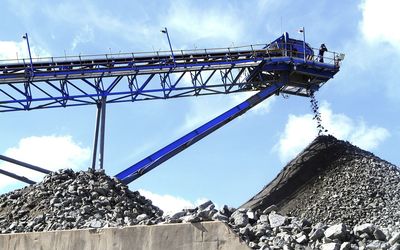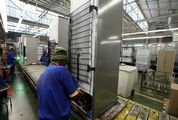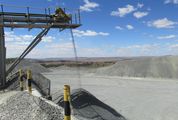SA company secures licence for fuel cell plant
by Agency Staff,
2016-02-09 19:28:36.0
SA PLANS to set up a fuel cell component plant by 2018, the latest initiative from the world’s top platinum producer to increase demand for the metal and support firms hit by plunging prices and labour strife.
The price of platinum has fallen 27% year-on-year, forcing miners to sell assets and cut production and jobs. About two-thirds of the industry, whose mines were damaged by a five-month strike in 2014, are making losses.
Isondo Precious Metals CE Vinay Somera said his firm was preparing a feasibility study and has secured a licence from US-based Chemours Technology, to assemble components for the fuel cells using platinum.
Fuel cells generate electric power by combining hydrogen and oxygen over a catalyst such as platinum. The metal has so far mainly been used in catalysts to make diesel cars cleaner.
"We are looking to get manufacturing in the ground in the next one to two years," Mr Somera said on the sidelines of this week’s Mining Indaba in Cape Town.
Under the deal with Chemours, Isondo would manufacture, market and sell licensed fuel cell components globally.
Mr Somera said a key advantage for his firm would be to bring the cost of the technology down by sourcing the metal locally.
The government has also promised tax incentives for the manufacturing to take place in special economic zones, he said.
Trade and Industry Minister Rob Davies said at the conference his department was paying R15m to fund part of the cost of the feasibility study.
"We want to establish this technology as something which builds into the platinum industry, supports and sustains an expansion and stabilisation of the platinum industry," he said.
Mr Somera said his firm was also looking at fuel cell stacks on gas pipelines in Nigeria and using micro-grid fuel cells for rural electrification across Africa.
The current market for fuel cells is about 15,000 to 20,000 ounces of platinum a year, with a projected outlook of 50,000 ounces plus beyond five years, Mr Somera said.
Should the automotive sector adopt the technology, then a shift by only a very small fraction of the world’s fleet could lift demand. Fuel cell powered cars use between five and 10 times more platinum than a diesel catalytic converter, analysts say.
"The automotive sector is the holy grail," Mr Somera said.
Reuters

Platinum. Picture: REUTERS
SA PLANS to set up a fuel cell component plant by 2018, the latest initiative from the world’s top platinum producer to increase demand for the metal and support firms hit by plunging prices and labour strife.
The price of platinum has fallen 27% year-on-year, forcing miners to sell assets and cut production and jobs. About two-thirds of the industry, whose mines were damaged by a five-month strike in 2014, are making losses.
Isondo Precious Metals CE Vinay Somera said his firm was preparing a feasibility study and has secured a licence from US-based Chemours Technology, to assemble components for the fuel cells using platinum.
Fuel cells generate electric power by combining hydrogen and oxygen over a catalyst such as platinum. The metal has so far mainly been used in catalysts to make diesel cars cleaner.
"We are looking to get manufacturing in the ground in the next one to two years," Mr Somera said on the sidelines of this week’s Mining Indaba in Cape Town.
Under the deal with Chemours, Isondo would manufacture, market and sell licensed fuel cell components globally.
Mr Somera said a key advantage for his firm would be to bring the cost of the technology down by sourcing the metal locally.
The government has also promised tax incentives for the manufacturing to take place in special economic zones, he said.
Trade and Industry Minister Rob Davies said at the conference his department was paying R15m to fund part of the cost of the feasibility study.
"We want to establish this technology as something which builds into the platinum industry, supports and sustains an expansion and stabilisation of the platinum industry," he said.
Mr Somera said his firm was also looking at fuel cell stacks on gas pipelines in Nigeria and using micro-grid fuel cells for rural electrification across Africa.
The current market for fuel cells is about 15,000 to 20,000 ounces of platinum a year, with a projected outlook of 50,000 ounces plus beyond five years, Mr Somera said.
Should the automotive sector adopt the technology, then a shift by only a very small fraction of the world’s fleet could lift demand. Fuel cell powered cars use between five and 10 times more platinum than a diesel catalytic converter, analysts say.
"The automotive sector is the holy grail," Mr Somera said.
Reuters




















Change: 0.36%
Change: 0.45%
Change: -0.01%
Change: 0.92%
Change: -0.88%
Data supplied by Profile Data
Change: -0.34%
Change: -0.16%
Change: 0.36%
Change: 0.00%
Change: -0.10%
Data supplied by Profile Data
Change: 0.03%
Change: 0.44%
Change: 0.26%
Change: 0.60%
Change: 0.00%
Data supplied by Profile Data
Change: 0.53%
Change: -0.61%
Change: 0.43%
Change: 1.25%
Change: -2.53%
Data supplied by Profile Data